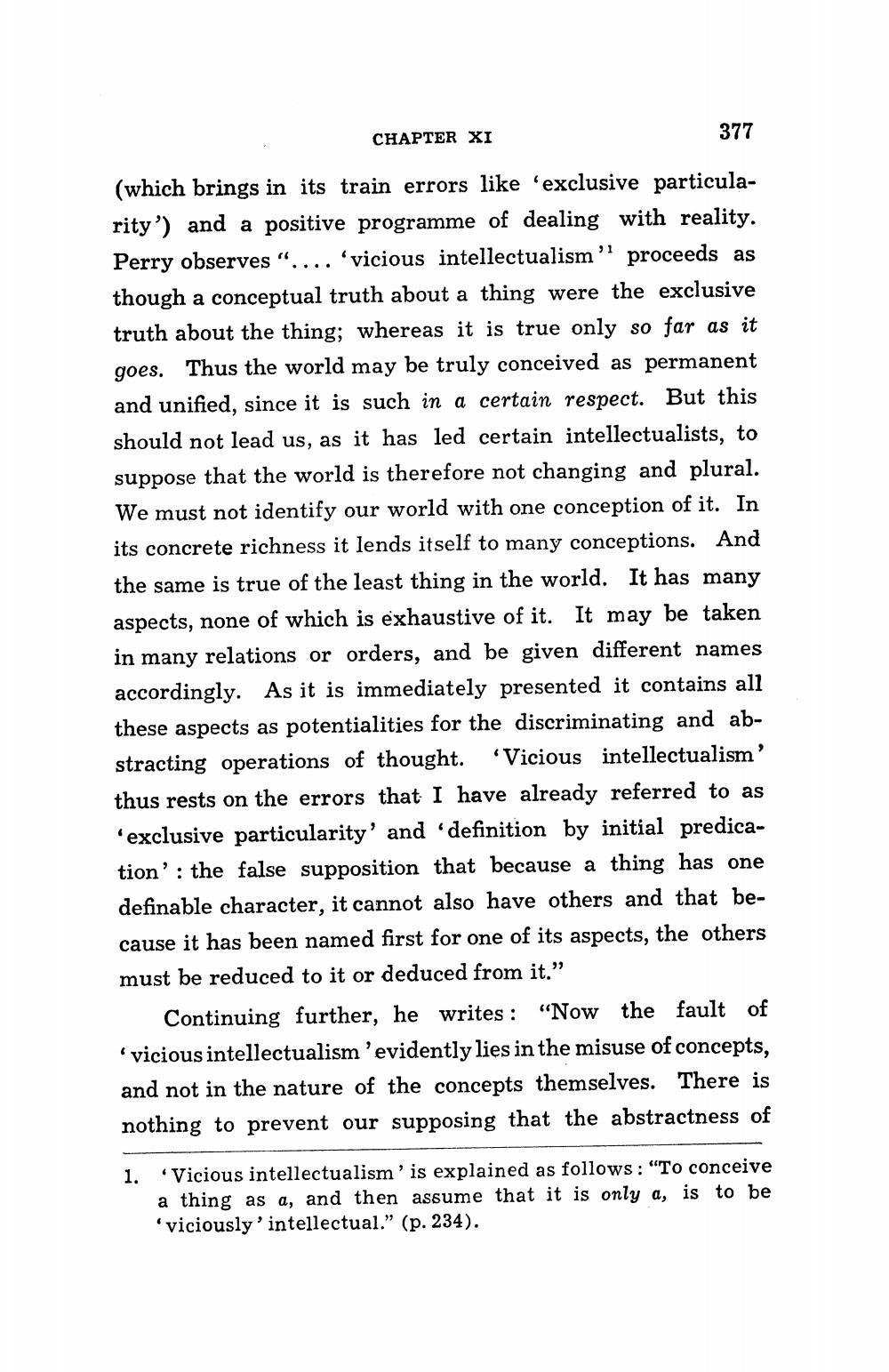________________
CHAPTER XI
377 (which brings in its train errors like 'exclusive particularity') and a positive programme of dealing with reality. Perry observes ".... 'vicious intellectualismo proceeds as though a conceptual truth about a thing were the exclusive truth about the thing; whereas it is true only so far as it goes. Thus the world may be truly conceived as permanent and unified, since it is such in a certain respect. But this should not lead us, as it has led certain intellectualists, to suppose that the world is therefore not changing and plural. We must not identify our world with one conception of it. In its concrete richness it lends itself to many conceptions. And the same is true of the least thing in the world. It has many aspects, none of which is exhaustive of it. It may be taken in many relations or orders, and be given different names accordingly. As it is immediately presented it contains all these aspects as potentialities for the discriminating and abstracting operations of thought. “Vicious intellectualism' thus rests on the errors that I have already referred to as 'exclusive particularity' and 'definition by initial predication': the false supposition that because a thing has one definable character, it cannot also have others and that because it has been named first for one of its aspects, the others must be reduced to it or deduced from it.”
Continuing further, he writes: “Now the fault of 'vicious intellectualism 'evidently lies in the misuse of concepts, and not in the nature of the concepts themselves. There is nothing to prevent our supposing that the abstractness of
1. “Vicious intellectualism' is explained as follows: "To conceive
a thing as a, and then assume that it is only a, is to be 'viciously'intellectual.” (p. 234).




